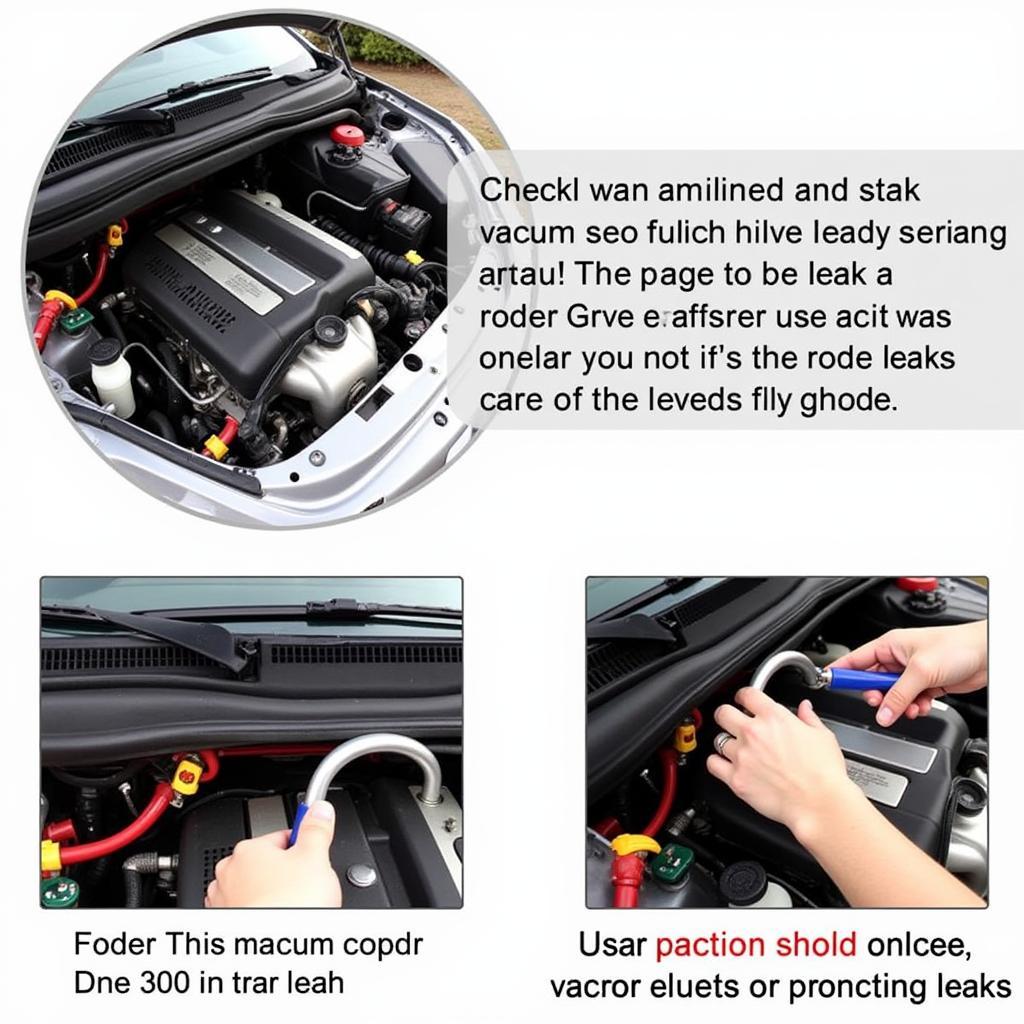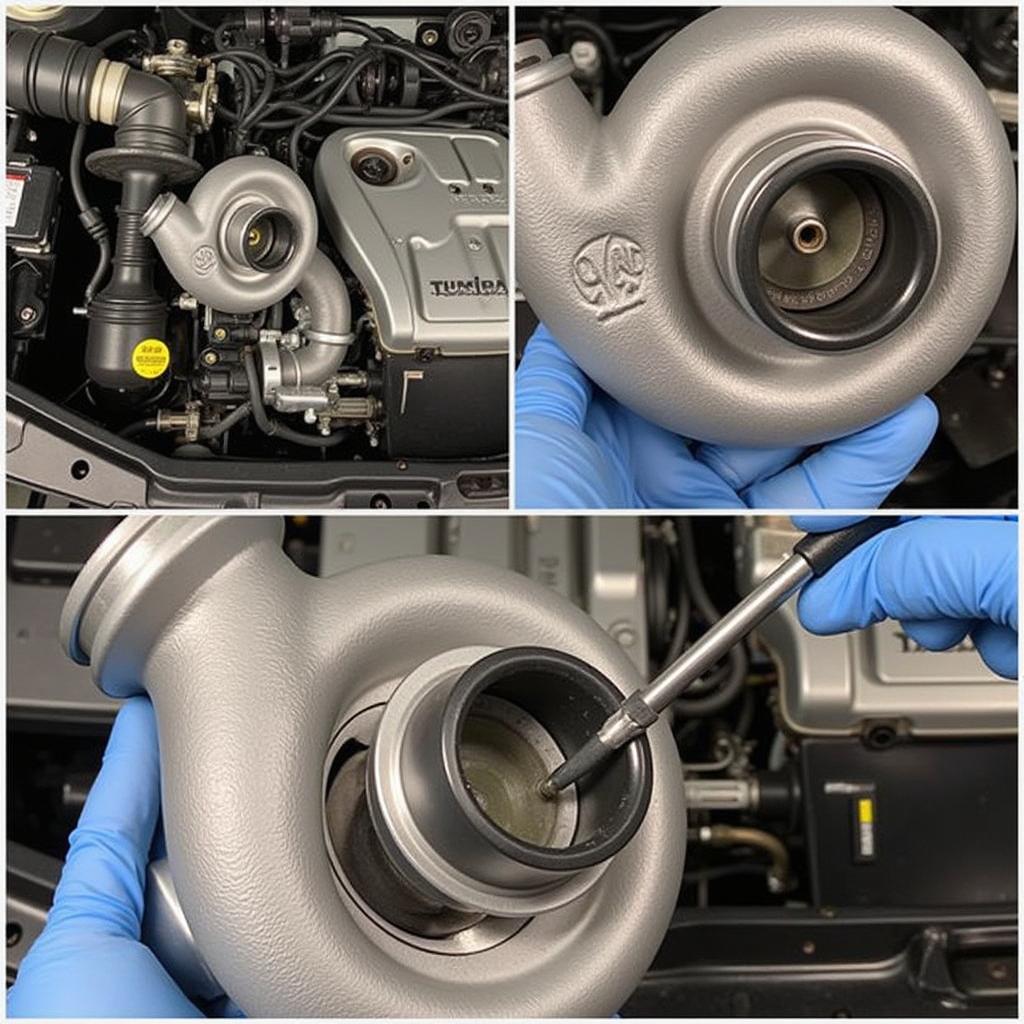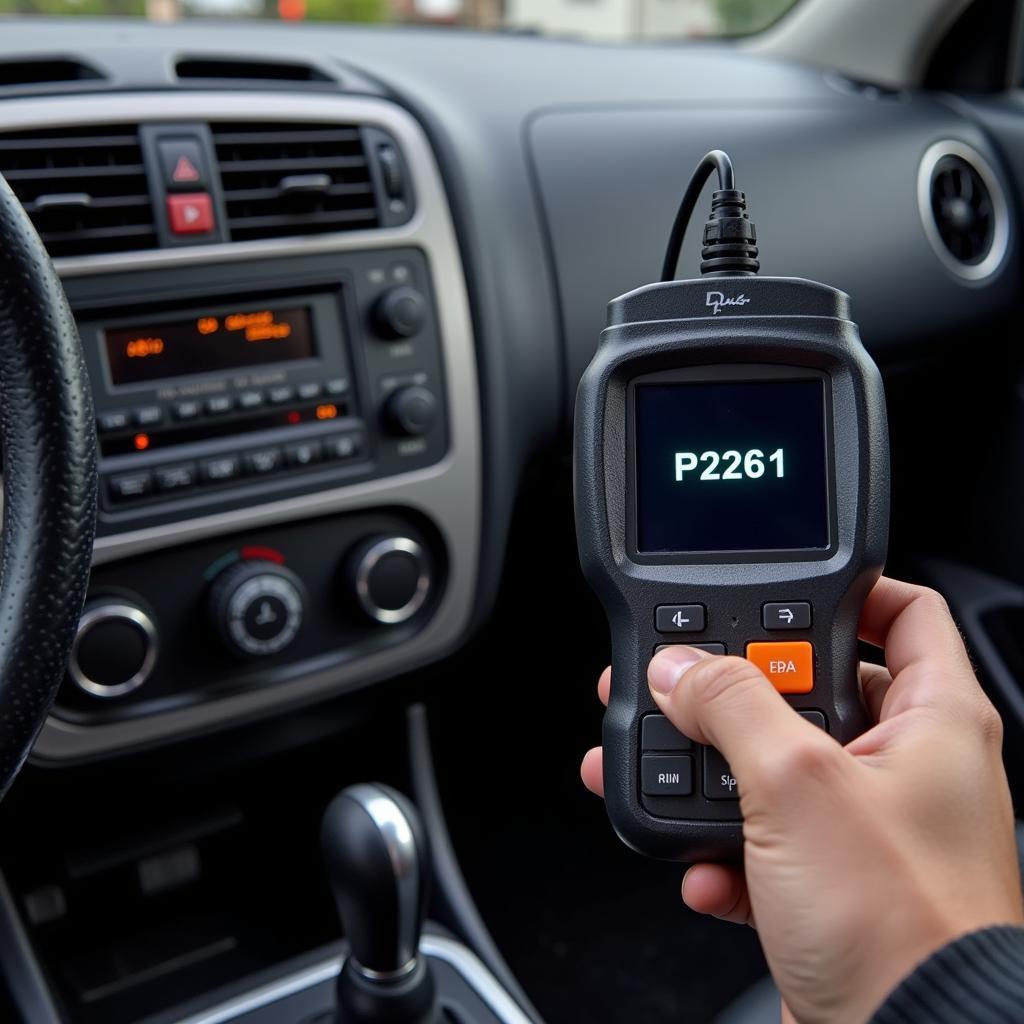Your cart is currently empty!

Troubleshooting the 2005 VW Beetle P2261 Code
The dreaded P2261 code on your 2005 VW Beetle can be a real headache. This article will dive deep into understanding, diagnosing, and fixing the P2261 code, which signifies a “Turbo/Super Charger Boost System Performance.” We’ll cover everything from the basics to more advanced troubleshooting, empowering you to take control of the situation.
What Does the P2261 Code Mean on a 2005 VW Beetle?
The P2261 code indicates that the powertrain control module (PCM) has detected a problem with the boost pressure produced by the turbocharger. This could mean the actual boost pressure is higher or lower than the expected value. Ignoring this code can lead to further engine damage and reduced performance, so prompt action is essential.
Common Causes of the P2261 Code
Several issues can trigger the P2261 code in your 2005 VW Beetle. Some of the most common culprits include:
- Faulty Boost Pressure Sensor: This sensor provides information to the PCM about the boost pressure. If it’s malfunctioning, it could send inaccurate readings, triggering the code.
- Vacuum Leaks: Leaks in the vacuum hoses or intake system can disrupt the boost pressure, leading to the P2261 code.
- Wastegate Issues: The wastegate regulates boost pressure. A stuck or malfunctioning wastegate can cause overboost or underboost conditions.
- Blocked or Damaged Turbocharger: A clogged or damaged turbocharger won’t be able to generate the required boost pressure.
- Issues with the Diverter Valve: A faulty diverter valve (also known as a blow-off valve) can cause fluctuations in boost pressure.
Diagnosing the 2005 VW Beetle P2261 Code
Proper diagnosis is crucial before throwing parts at the problem. Here’s a step-by-step guide:
- Check for Other Codes: Use an OBD-II scanner to check for any other codes stored alongside the P2261. These can provide valuable clues.
- Inspect Vacuum Lines: Carefully inspect all vacuum lines connected to the turbocharger and intake system for leaks or cracks.
- Test the Boost Pressure Sensor: Use a multimeter to test the sensor’s voltage and resistance according to the manufacturer’s specifications.
- Check the Wastegate Operation: Inspect the wastegate actuator and linkage for proper movement. You might need to apply vacuum or pressure to test its functionality.
- Inspect the Turbocharger: Check for excessive play in the turbocharger shaft and look for signs of damage to the turbine or compressor wheels.
 Inspecting Vacuum Lines for Leaks on a 2005 VW Beetle
Inspecting Vacuum Lines for Leaks on a 2005 VW Beetle
How to Fix the P2261 Code on Your 2005 VW Beetle
Once you’ve identified the cause, you can take the appropriate steps to fix the issue. This may involve replacing a faulty sensor, repairing vacuum leaks, or even replacing the turbocharger.
- “A common mistake people make is assuming the turbocharger is always the problem. Thorough diagnosis can save you time and money.” – John Miller, ASE Certified Master Technician
Remember, safety first! Always disconnect the battery before working on any electrical components.
 2005 VW Beetle Turbocharger Inspection for Damage
2005 VW Beetle Turbocharger Inspection for Damage
2005 VW Beetle P2261 Code: Conclusion
The P2261 code on your 2005 VW Beetle can seem daunting, but with the right information and approach, you can successfully diagnose and resolve the issue. Remember to be systematic in your approach, and don’t hesitate to seek professional help if needed.
For further assistance with your 2005 VW Beetle or any other vehicle diagnostic needs, contact us at VCDSTool at +1 (641) 206-8880 and our email address: vcdstool@gmail.com or visit our office at 6719 W 70th Ave, Arvada, CO 80003, USA. We’re here to help you get back on the road!
 Using an OBD-II Scanner to Read the P2261 Code on a 2005 VW Beetle
Using an OBD-II Scanner to Read the P2261 Code on a 2005 VW Beetle
FAQ
- Can I drive my car with a P2261 code? While you can technically drive, it’s not recommended. Driving with this code can cause further damage and reduce fuel efficiency.
- How much does it cost to fix a P2261 code? The cost depends on the underlying cause. It could range from a simple vacuum hose replacement to a more expensive turbocharger replacement.
- Is the P2261 code serious? Yes, ignoring this code can lead to serious engine damage and decreased performance.
- What tools do I need to diagnose the P2261 code? You’ll need an OBD-II scanner, a multimeter, and some basic hand tools.
- Can a bad diverter valve cause the P2261 code? Yes, a faulty diverter valve can disrupt boost pressure and trigger the P2261 code.
- How can I prevent the P2261 code in the future? Regular maintenance, including checking vacuum lines and ensuring proper turbocharger lubrication, can help prevent this code.
- What is the difference between overboost and underboost? Overboost is when the turbo produces more boost than intended, while underboost is when it produces less than required. Both can trigger the P2261.
by
Tags:
Leave a Reply